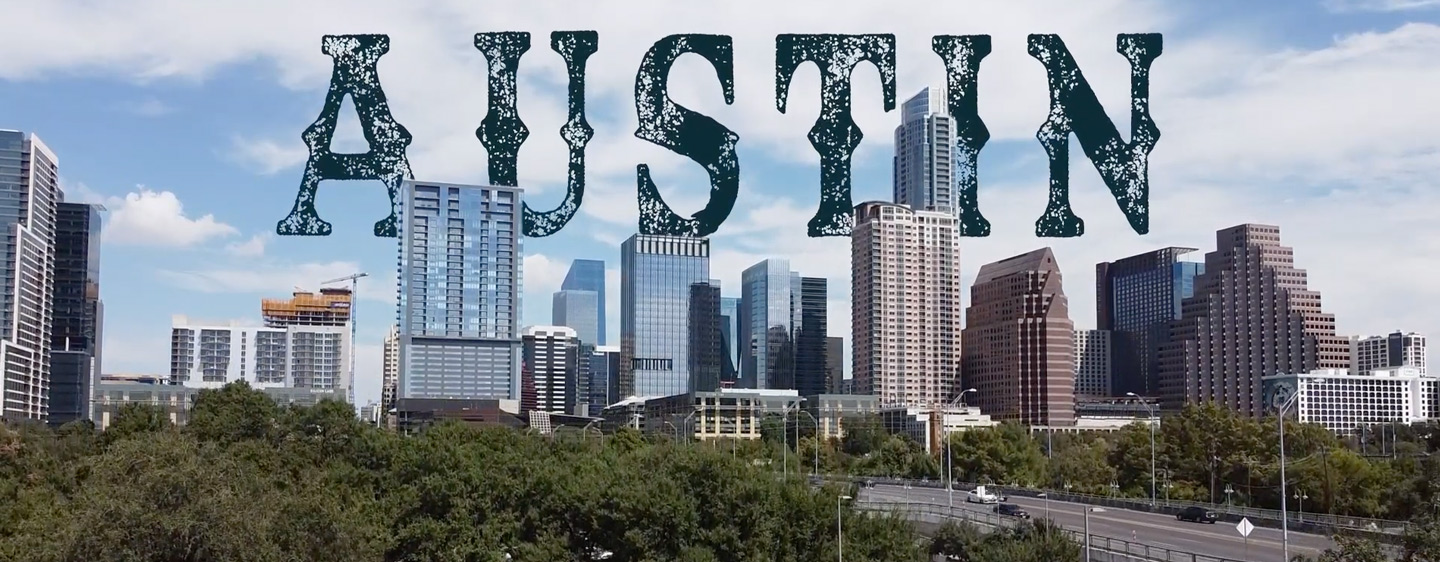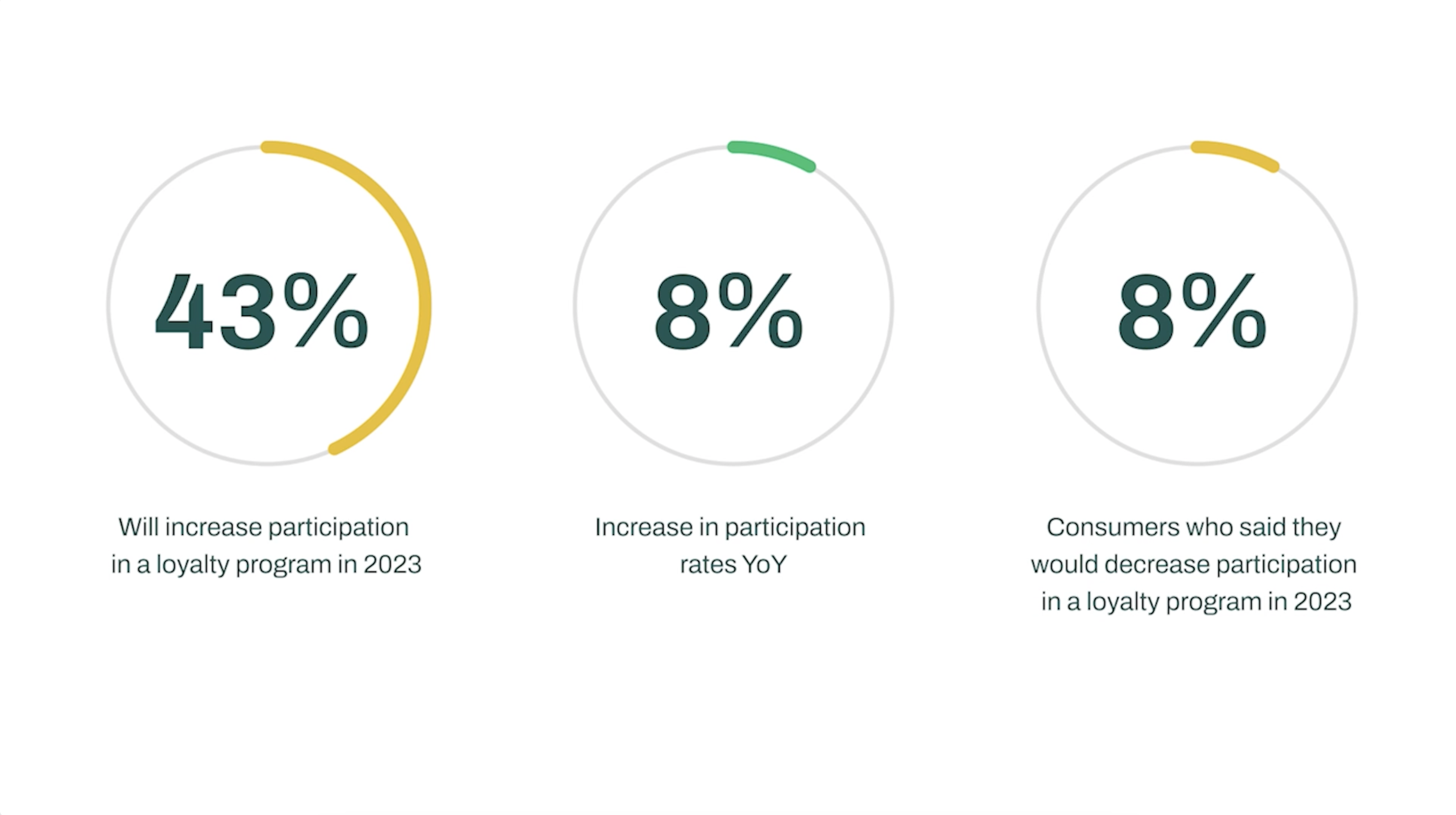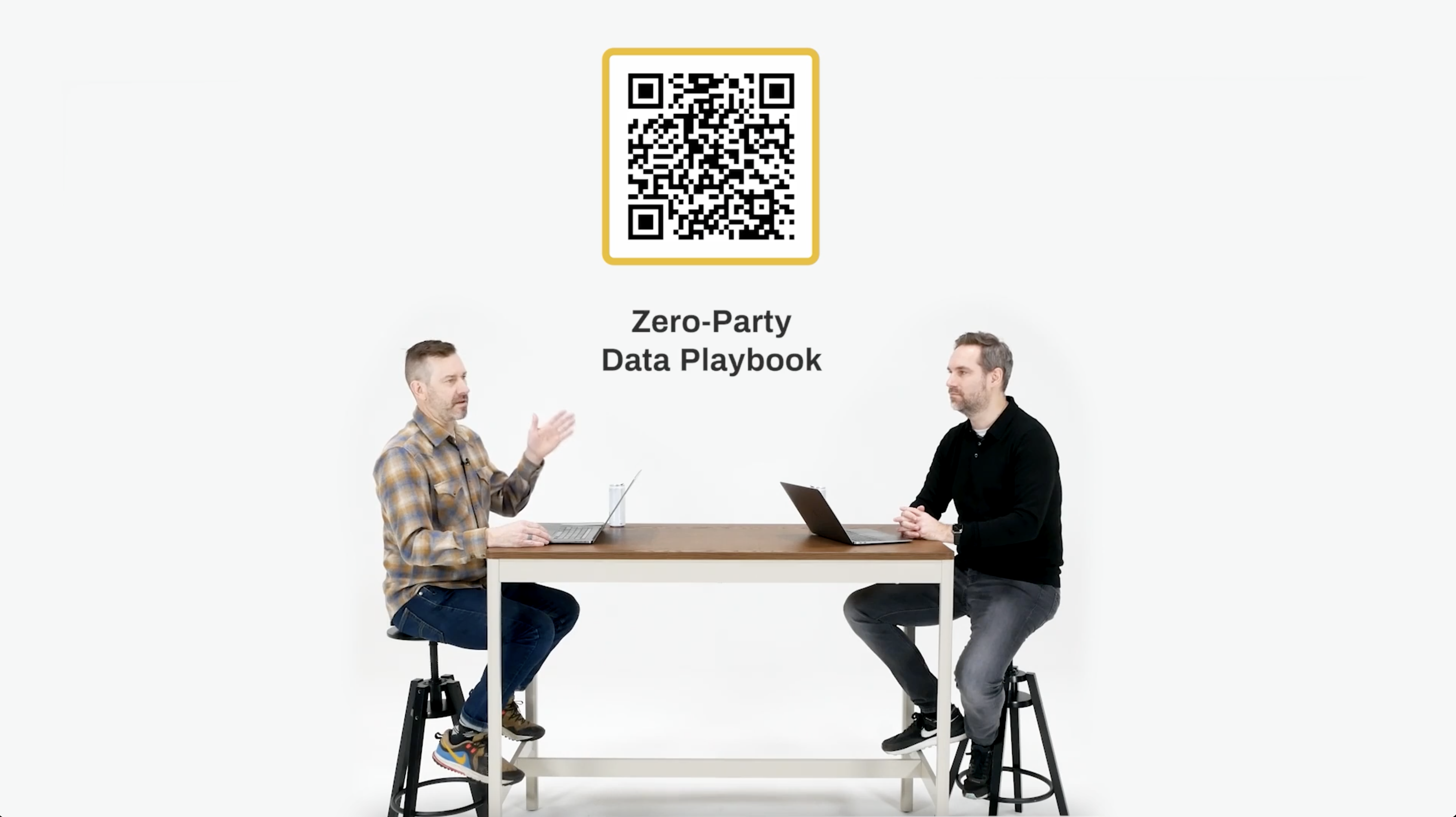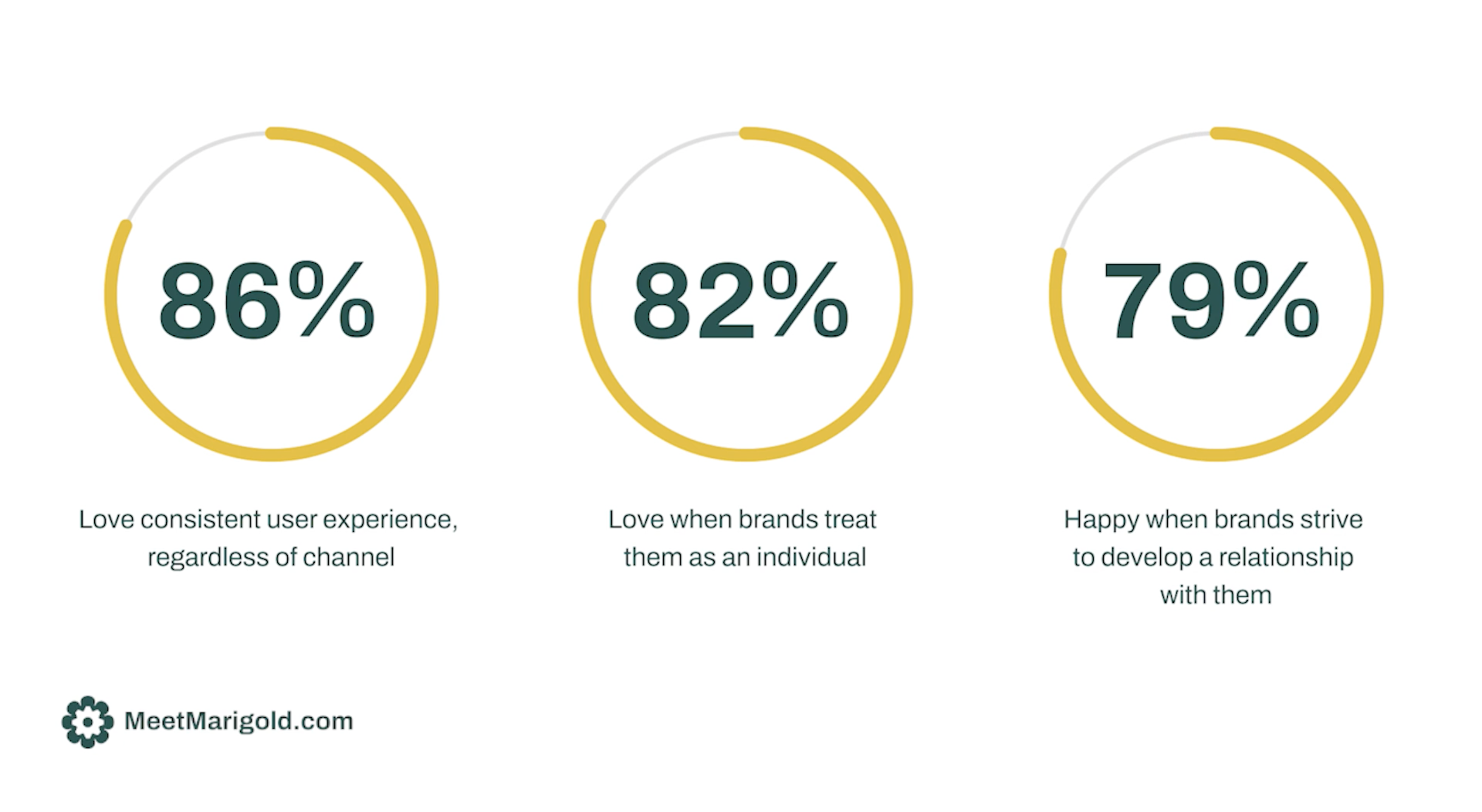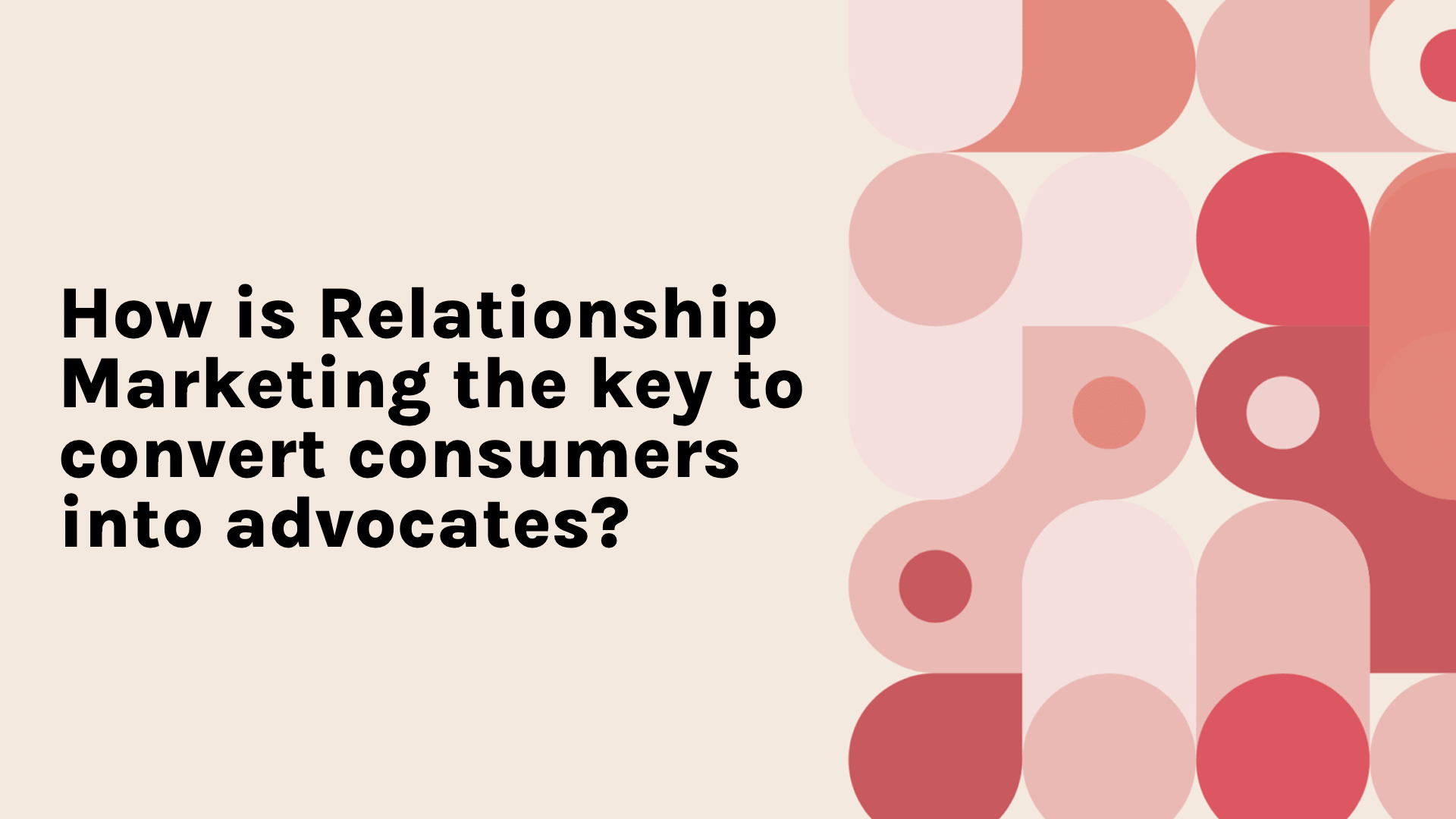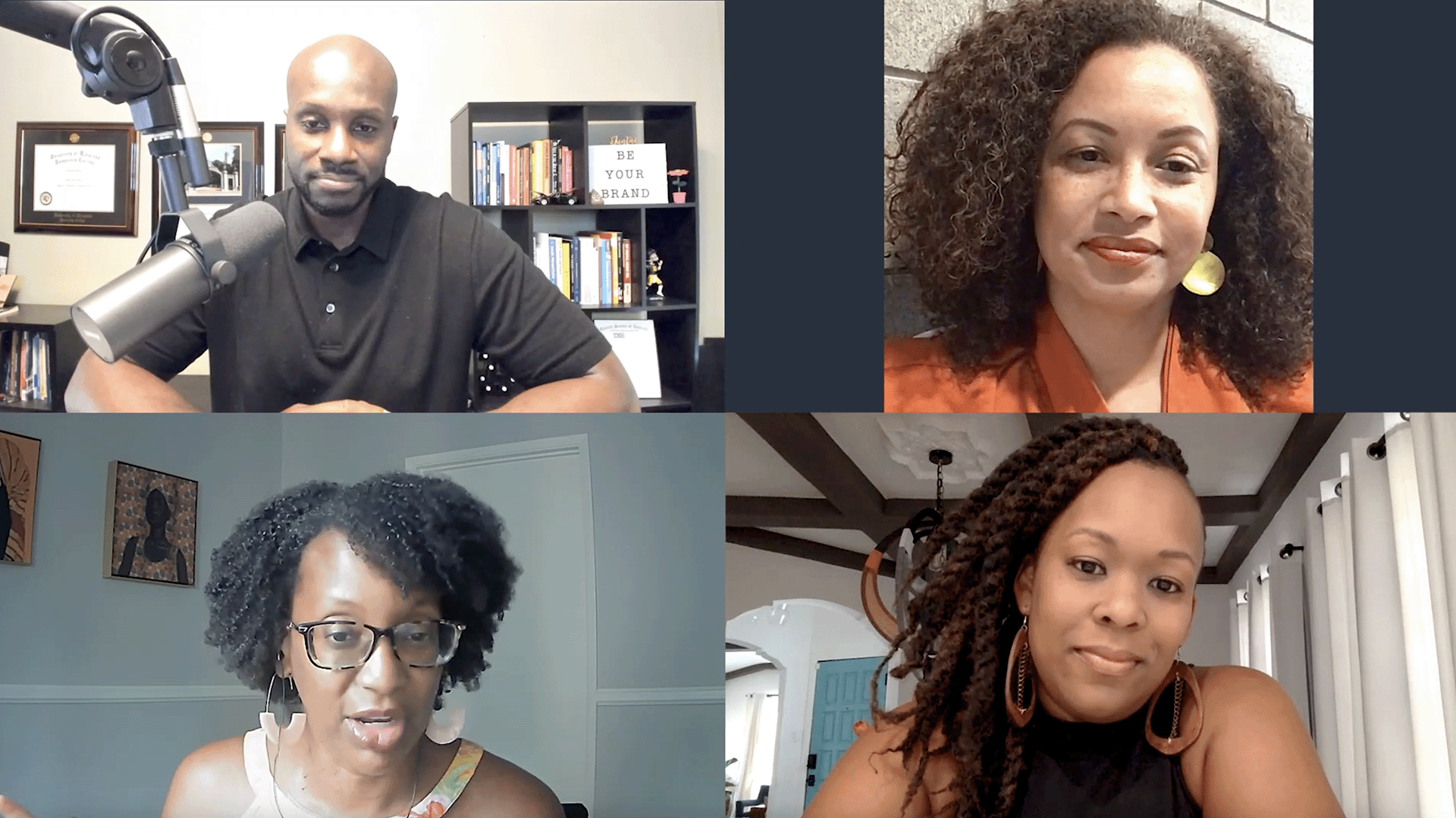The Customer Engagement Suite Difference with Torchy's Tacos CMO
- 0.5
- 1
- 1.25
- 1.5
- 1.75
- 2
Speaker 1: Welcome to Austin, Texas, where the cowboy boots are tall and the music runs late. But, we think it's known for something far more interesting. Tacos. Austin might be the capital of Texas, but it's definitely the home of Tex- Mex food fare. Today, Tim Glomb is visiting Cheetah Digital client's Torchy's Tacos, at their iconic South Congress Street location, to talk marketing strategies with CMO Scott Hudler. With nearly 100 locations and a cult- like following, Torchy's Tacos is rolling out a new loyalty program that's anchored in moments like surprise and delight, while gathering crucial customer data, to personalize in- store experiences. So without further ado, welcome to another great Client Session that just happens to include some damn good tacos.
Tim Glomb: All right, Torchy's Tacos. This is going to be a damn good interview and we're going to have some damn good tacos after it. But Scott, thanks for having me, buddy.
Scott Hudler: Thanks for having me.
Tim Glomb: Thanks for locking down the place, I know you guys are getting ready to open. Let's get into, man. Why don't you tell us, what's the Torchy's footprint look like, what's your business model, how many stores, et cetera?
Scott Hudler: Okay.
Tim Glomb: What's the high level overview?
Scott Hudler: Torchy's Tacos, founded in a food trailer here in Austin, Texas about 10 blocks from where we're sitting right now.
Tim Glomb: Cool.
Scott Hudler: Started in a food trailer back in 2006. We just celebrated our 15th anniversary. By the end of this year, 2021, we will be in 10 states with 100 locations.
Tim Glomb: Wow!
Scott Hudler: Yeah. We think what separates Torchy's, we're not a Mexican chain. We serve tacos. But Mike Rypka, our founder, classically trained chef, worked at the World Bank, ran their food service, his goal was how do you elevate the lowly street taco. That's where he felt you see a lot of the great innovation, and blending of multiple flavors, multiple ethnicities, so that's what he set out to do. We don't like to think of ourselves... We're definitely not fast food.
Tim Glomb: Okay.
Scott Hudler: We're not fast casual. We've created this segment that we call craft casual.
Tim Glomb: Craft casual.
Scott Hudler: Craft casual.
Tim Glomb: I like it.
Scott Hudler: Three pillars of that are it's the speed and convenience of fast casual. It's the creativity and authenticity that one would find in a food truck or a food trailer, which ties back to our roots. If you look at our menu, lots of interesting combinations of items. And then, the third piece is just the craft nature of the business we take. We shuck our own corn for street corn, we squeeze our own limes. When you order at Torchy's, that's when your proteins are cooked or fried.
Tim Glomb: Wow!
Scott Hudler: They're not sitting in a pan, coming down cafeteria style, getting slopped out there. It's made- to- order, scratch based kitchen, everything gets made fresh here daily. If you hear some background noise while we're talking, that's because they're back there prepping the fajita beef, the queso, they're back there doing that right now. Nothing's coming in frozen.
Tim Glomb: Well, I guess that's a commitment you have to have to make it damn good.
Scott Hudler: The story about damn good is when Mike started with the food trailer, it was in a terrible location, just from a traffic standpoint. He would take chips and salsa, tacos and be the guy standing in between cars at traffic lights. He would give it to anybody that would take it. They would take it, and they'd take a bite and they'd say, " Man, that's damn good." That became part of the logo. And then, fast forward now a couple of years ago, we just made it our mission. Our mission is be damn good, whether we're talking about serving our guests, dealing with one another as employees, it's just be damn good in everything that we do.
Tim Glomb: Wow! I like it, I like it. And put it on the wall, just wear it.
Scott Hudler: We have this in every single Torchy's location. Damn good is in some different representation. Here, it's in channel lighting, sometimes it's in neon. Sometimes it's on the ceiling, sometimes it's on the floor. We have one location that does not have it because a local pastor came in and asked us to remove it.
Tim Glomb: It happens.
Scott Hudler: We said no. But then we said we'd never do that again, because that's who we are.
Tim Glomb: Got it, all right. I'm not going to ask where your damn good tattoo is so you won't have to show that to us.
Scott Hudler: We have several people in the organization that have it.
Tim Glomb: Wow!
Scott Hudler: And then, there are several people who are just big fans of the brand that have a Torchy's tattoo.
Tim Glomb: I mean, that's commitment, you're getting" Damn good Torchy's" tattooed on you.
Scott Hudler: Absolutely.
Tim Glomb: That's the reason we're here and we're talking, is about loyalty, connection with your consumers, et cetera. You're rolling out a vision with Cheetah Digital here. Why don't you tell us a little bit about how you got to your loyalty program and what the first phase vision looks like?
Scott Hudler: Yeah. We set out to build something that was not your traditional loyalty program. We did not want points and punches. I've been fortunate enough in my career to build some of those programs and they're great, but Torchy's is a different brand. We're not a very transactional brand, we want to have a relationship with our guests. That's one thing that differentiates us. We call the people that come in, we call them guests not customers. It's a guest because we want to treat them like they were a guest in our home so it's hospitality. Damn good food and damn good hospitality. So when we set out to build this, yeah we're going to give free tacos away as a thank you for coming in but we also wanted it to be more experience based.
Tim Glomb: Sure.
Scott Hudler: And, built it as surprise and delight. You may come in and they might just be like, " Hey Tim, thanks. Today's meal is on us."
Tim Glomb: Wow, just surprise and delight because I'm an awesome Torchy's customer.
Scott Hudler: Or, here's a special t- shirt that only our best taco junkies will get.
Tim Glomb: Yeah.
Scott Hudler: And then, we're building it out to also have some events that will be exclusive to our taco junkies, to that top tier of our guests. We'll have special events that may be a margarita tasting in one market, it may be a small, intimate concert in another. But, just things that will constantly keep our guests engaged with us that isn't in a transactional nature. We want it to be so much more than just us having a business relationship. It's a personal experience that we want to build with our guests.
Tim Glomb: Sure, all right. Well, everyone's getting back into loyalty, even the big chains, the McDonald's, the Burger Kings are getting into loyalty. But, they are very much points and purchase driven. That's great to hear that you're going the more experiential route. All of this, from day one, is going to be personalized, right?
Scott Hudler: Right.
Tim Glomb: You already have an app, the loyalty program will be integrated into the app. There will be a QR code in the app so if I walk in and show that QR code, your staff will say, " Hey, Tim!"
Scott Hudler: Yeah.
Tim Glomb: "Here's your shirt, or here's your surprise and delight."
Scott Hudler: We know that mobile is the driver. We'll have other ways for you to be identified, but mobile is going to be the vast majority of how... It's how we all live our lives these days. Let's don't try and recreate the wheel here. Let's go QR code on there, you can scan, earn your points, get rewarded, all right there from the Torchy's app.
Tim Glomb: Got it, all right. Mobile first, I like that. But, other channels are important as well, when you're personalizing the app and the in- store experience. How important as a marketer, do you think being able to personalize and use that data across multiple channels, email, SMS, in- app wallet, how important is that in today's day and age?
Scott Hudler: It's huge. It's part of the reason we want to build this program. Right now, I can tell you how many Democrat tacos we sold yesterday, I can tell you how many Republican tacos we sold yesterday, I just can't tell you who bought them. So having this personalization to know Tim likes this taco, that you're a big Mr. Orange fan, so we can market to you when we have tacos that come onto the menu that we think you'll like.
Tim Glomb: Sure.
Scott Hudler: We have a taco of the month program, so every month a new taco, just like it sounds. But, if we see in your profile you never order beef, well maybe we shouldn't message you that we have a new beef taco. So making sure that we can personalize it like that. And also know, here's some things on the menu that you've never tried that maybe you would like to try. Maybe it's a margarita. Maybe it's you only get our queso, you never get our guac. So let's do something to entice you to do that and really have you explore the menu. The only way we can do that is by having personal data and knowing what you are buying, so we can tailor what we'd like you to buy.
Tim Glomb: This is what we call a single source, a single marketing record on a person but you also talk about the aggregate. How important is it to have all of that data? Tim's data as well as aggregate data, how many Republican tacos, how many Democrat tacos. How important is it to have that in a single dashboard? One truth instead of all these disparate data silos that you're stitching together into some third party.
Scott Hudler: Yeah. I think having that single source of the truth is what every marketer aspires to.
Tim Glomb: Sure.
Scott Hudler: It's the Holy Grail, the nirvana that we all want is, "All right, I don't have to toggle back and forth between different platforms." To be able to just have one thing where I can look and see, " Okay, our taco junkies made up X percent of sales, and we're trending positive in this way and not positive in this way. What's the action we can take about it?" If it's all in one place and it's all apples- to- apples, it makes our job a heck of a lot easier.
Tim Glomb: Yeah, yeah. Before we started, you talked a little bit about you made some decisions on your menu, mainly because you probably didn't have the data you just talked about. " Oh, Tim always gets the Republican." Explain that to me, your below the line decisions, where in COVID, whatever the catalyst was, you took some things off the menu and it didn't really go as planned.
Scott Hudler: Yeah. Coming out of COVID, as we started to reopen restaurants in summer of 2020, we made a couple business decisions. We pared back some of our hours. We used to open for breakfast everywhere and as people weren't going to work in the same manner, it didn't make sense to open so that was one. We also looked to thin the herd a bit on the menu. We drew a line and said, " Okay, everything below this line is coming off the menu." Historically, we have had politically named tacos.
Tim Glomb: Sure.
Scott Hudler: Over the years, we've had an Independent, a Libertarian, a Democrat, which is one of our top sellers, and a Republican, which is not one of our top sellers.
Tim Glomb: It's basically a cheddar, brat sausage taco.
Scott Hudler: A fine taco.
Tim Glomb: I like it.
Scott Hudler: For whatever reason, it just didn't sell as well as some of the others.
Tim Glomb: Sure. Okay.
Scott Hudler: Not us making a political statement whatsoever, we took the Republican off the menu. Regardless of what its name was, it was below our line. Yeah, that was not received super well by some of our guests and thought it was part of an elaborate conspiracy of Torchy's being a left leaning company.
Tim Glomb: Oh, no.
Scott Hudler: I think most companies would have just put out a statement that's very cut and dry like, " This is by no means a political maneuver." But we wanted to have some fun with it so we created a bunch of imagery and put a message on social saying, " You've caught us in this elaborate taco conspiracy," with images of the Illuminati.
Tim Glomb: You owned it. You just owned it.
Scott Hudler: We owned it. We were like, " Okay, we're going to bring it back." We refined it a little bit and we feel like it tastes better. Yeah, I think it was a case where maybe we looked at it in a purely transactional way of, " Okay, you're below the line, you need to go." It's not that we didn't think about it, we just didn't think the response would be as swift as it was.
Tim Glomb: Well, that's a great example of how a couple of people in the marketing department or whatever made a decision, but the people didn't want it.
Scott Hudler: Yeah.
Tim Glomb: It's great that you're moving into loyalty because now you get all of this awesome information.
Scott Hudler: Right.
Tim Glomb: As you said before, " We know how many X, Y, Zs we sell, but we don't know whose buying them." Now, you can actually connect, and this is relationship marketing, right?
Scott Hudler: Absolutely.
Tim Glomb: You connect with people. Maybe ask those questions, and look at numbers and facts to make a decision, but also be able to reach your audience. How important is that psychographic data to your longterm vision at Torchy's?
Scott Hudler: It's one of the things that's really... When you think about when Torchy's started in 2006 and as we grew, that's when social media was really taking off.
Tim Glomb: Yeah.
Scott Hudler: That feedback played a big role in where we located restaurants within Austin in the early days, where we went to new markets. " Hey, come to Dallas, come to Oklahoma City." It's always been a part of our DNA as a brand. And now, to be able to get even more of that data, more rich data, and not just relying on anonymous comments on social media, I think will just make us better marketers and run a better business.
Tim Glomb: Yeah. Let me ask you about personalization. You guys are on the path, you're bought in, you've already decided that personalization is the path forward. What could you say to another marketer who might be watching right now whose like, " Yeah, I get you. But segments and aggregate data is enough for me right now." Are they going to have a job in two years? How important is it to get to this granular level on a person basis?
Scott Hudler: Yeah. I think they'll have a job, I think it'll be a lot harder.
Tim Glomb: Okay.
Scott Hudler: Like the old expression, " knowledge is power." The more knowledge you have, the more power you have, the smarter decisions you'll make, the better it will be for your business. I think as marketers spend is, for most of the people watching, I'm sure the marketing budget is not hundreds of millions of dollars.
Tim Glomb: Sure.
Scott Hudler: You've got to be really smart with how you spend your money, and where you spend your money, and you want to put it somewhere where you're going to get the best return. Having all this personalized data will help you make that right decision.
Tim Glomb: Okay. Scott, you obviously have a loyalty program, you have a vision, you're moving it out. Let me ask you. Why did Cheetah become the partner for this rollout? Were there some big nuggets there that just said, " All right, Cheetah gets it?"
Scott Hudler: Yeah, there were a couple things. We kissed a lot of toads, if you will.
Tim Glomb: Okay, all right. Well, that's good to hear. We made it through a long cut.
Scott Hudler: Yes. Yeah, we talked to a lot of people in the space. There were a couple things. One was just the technology platform. We thought for what we needed, it was far superior to a lot of the other people that we had talked to. We wanted to have the loyalty piece as well as the messaging and to get that into one single source of the truth, and I think that was a big one. And then, probably the intangible was just the people. The people we met with, it was a great fit. We have some people in our technology organization that have experience with Cheetah in the past and it just worked. It was a great fit and worked really well together. That's how we think about who we want to do business with. It's both the can you do the job and are these people we want to go drink a margarita with at a Torchy's, and you guys checked yes on both boxes.
Tim Glomb: How about services? How do you look at the rollout of this new program, looking at a partner to execute versus in- house execution? What's your rollout plan there?
Scott Hudler: Yeah. I think we're a pretty lean organization, we're fairly small, so we need someone... We aspire to grow into having some of that in- house, but that's a ways away.
Tim Glomb: Sure.
Scott Hudler: So we needed a partner who could be there and hold our hand through helping with execution. And as we slowly move the needle over time, also be there to help us grow up and get on our own. I think that's another thing, that the services side of Cheetah was really one that scored super high in our review. And one that we saw would be a great partner for us at this time, that could help us hit the ground running because we have pretty huge hopes for this. I know it's going to be a lot of work and we just don't have the bodies to do it, so we're going to need that help and support over the first three to five years.
Tim Glomb: Cool. That's what we're here for, we've got a great strategic services team that could take care of you for that. Let me ask you, what are your KPIs? What are your goals that you're setting for this? Are they time lined, are they acquisition based, are they revenue based? What's success look like in your first rollout?
Scott Hudler: Yeah. Well, we've set some out. I think we'll be three months into this and be like, " All right, we've got 75% of these right and 25% of them wrong."
Tim Glomb: Sure.
Scott Hudler: But, our big KPIs are just getting people signed up. Because we feel like, the plan we have from the communications standpoint and getting people in more frequently, you have our food, you have our queso, you're going to come back.
Tim Glomb: Sure.
Scott Hudler: It sounds kind of cocky and brash, but that's what we focus on, we're a food first brand, so acquisition is a big one. And then, just engagement. Engagement by those members, are we driving incremental visits, those are the big ones. It all ladders back to, although loyalty isn't 100% of it, it all ladders back to would you refer us to a friend, our net promoter score.
Tim Glomb: Yeah.
Scott Hudler: All of these things that we're going to do ladder back to that. If that's working, then sales are working, and profits are working and everything's good.
Tim Glomb: Fair. Build great relationships and people will bring more people.
Scott Hudler: Exactly.
Tim Glomb: "Tap the audience of your audience," as Fred Graver from Twitter would say.
Scott Hudler: Yes.
Tim Glomb: All right, good. Well, let's round this out. I have some quick fire questions for you, short answers. If you don't have an answer, that's okay, you'll still win a prize.
Scott Hudler: All right, perfect.
Tim Glomb: I don't know what the prize is. Let me ask you, in this day and age, everyone is rumbling around cookies. Third party data, whether you're buying, selling, renting on ad audiences on Facebook, who knows where you're getting data. How serious is this third party conundrum versus acquiring your own data and understanding your own audience, and being able to take your own audience to a Facebook, and Amazon or Google to make those matches? How important is the death of the cookie and what should marketers look out for?
Scott Hudler: I think for us, our priority is having really good first party data. If we have that, then those are a nice add on. If they completely go away, if we woke up and we're in a non third party data world someday, we'll be all right. But, we want to focus on first party, acquiring our data, so then we can say, " This is the Torchy's guest. Go find us these people."
Tim Glomb: Got it, okay. What scares you the most in all this shifting sand of marketing and technology disruption? Apple's iOS is getting more private, the death of the cookie, et cetera. What in the next 12 months scares you the most, if anything?
Scott Hudler: I think that the thing that's scared me, and this has been ongoing and just getting worse, is just increased fragmentation. You think about someone who was sitting in my seat back in the'80s it was like, " Hey, this is pretty easy. Let's just go by Thursday night on NBC and we're set. All right, we're good." Now, it's so fragmented. Just take audio. You still have terrestrial radio, you have satellite radio, you have podcasts. Everyone's budgets did not grow in alignment with it. Just the increased fragmentation of today we talk about Facebook, Twitter, Instagram but 10 years ago, we probably weren't having that conversation. So 10 years from now, what are we going to be talking about?
Tim Glomb: Okay, I've got another question for you. You've done time at Mars, you've done time at Dunkin', you've been around the block. How important, in today's day and age, is consolidating your martech and ad tech stack, versus having a bunch of different endpoint solutions? Would you rather see more eggs in one basket that does it really well, or a million different endpoint solutions that are specialized in what they do?
Scott Hudler: Yeah. Probably a different answer, based on where you're at. But from my point of view, I like the all being in one basket, the one throat to choke if you will. We used to joke, at a previous place, for a mobile order to go through we used to say it was 47 different miracles that had to happen.
Tim Glomb: Oh, yeah.
Scott Hudler: Company A's stack needs to talk to company B's, which needs to go to C and then route back to A. It's just a lot. I don't know that across our entire martech stack it gets to a single one, but from communications, how do we keep that together so it's... Easier and clearer is pretty key for us.
Tim Glomb: It makes a lot of sense. Today's age, the consumer wants more privacy than ever but they also want more personalization than ever.
Scott Hudler: Right.
Tim Glomb: How important do you think it is going forward to A, collect your own data and B, get the permissions and manage those permissions? Not just GDPR, and CCPA and all of that. But if somebody wants to opt out of email but not SMS or vice versa, how important is it? Should marketers be putting weight into that process and management?
Scott Hudler: Yeah. Well, there's a couple things. I think we should make it super easy for our guests to opt in and opt out. If they want to opt out of SMS but not email, make it super easy, super clear. I think the responsibility of the brand is this has got to be a value exchange. This isn't just you giving me your email and now me spamming you all the time, or sending you unwanted texts. But, how are we providing you what that guest sees as a value in that relationship? It can't be one- sided. If we're giving you value, then hopefully then you're not going to want to opt out. But if you do decide you want to, make it super easy. Let's not be a stalker.
Tim Glomb: Yeah, got to be values. With that said, last question I have for you. Consumers, especially Millennials, the ones that have money that everyone's chasing, they really align their wallet with their own brand values. They want to spend with the brands that they feel align with them. How important is that moving forward for marketers in today, to almost wear it on their sleeve or project their values? Or, should they not be projecting their values because they might get in trouble with somebody?
Scott Hudler: Yeah. We found that out on the Republican. It was an un- goal if you will, not intended. I think that one's a slippery slope. It's tough and depends on the issue. If you go all in on one issue, then a lot of times consumers are going to expect you to go all in on every issue. Our approach is pretty simple. We welcome everybody. The great thing, if you go to a Torchy's, you'll see all different races and ethnicities. You'll see people with different colored hair, you'll see people with tattoos. We don't care. Come as you are is what we've always said. There's this great expression that you hear in Austin a lot. It's" all means y'all," all is everybody. We are welcoming everybody from every walk of life. We're here to serve damn good food, damn good tacos and treat you like a guest in our home.
Tim Glomb: With that said, I say we end this. Your team has been working feverishly in the background here and they're getting tacos ready. I say we try some damn good tacos.
Scott Hudler: Let's do it.
Tim Glomb: All right, man. Well, this has been great.
Scott Hudler: Thanks a lot.
Tim Glomb: Appreciate you sitting down. Can't wait, get into a Torchy's Tacos, get the app, get your loyalty. Get involved, check it out. I might have the Republican, just to see what the whole hubbub is about.
Scott Hudler: Sounds good.
Tim Glomb: All right, let's do it.
DESCRIPTION
Many Cheetah Digital clients have adopted our full Customer Engagement Suite (CES) to power their long term relationships from first touch with a consumer through their becoming a loyal customer and brand advocate. In this session with Scott Hudler, CMO for Torchy’s Tacos, we explore their customer engagement vision and why the CES was the right decision for their plans. From acquiring customers, engaging them from a single platform and building long lasting loyalty, you’ll get a first hand account of the process and decisions that go into charting a successful future with the right technology partner.
Scott sits down with Cheetah Digital’s VP of Content, Tim Glomb, from one of their Austin, Texas locations to chat about all things marketing. Grab your seat now and join us for a session that’s bound to make you hungry while you watch.
Today's Guests
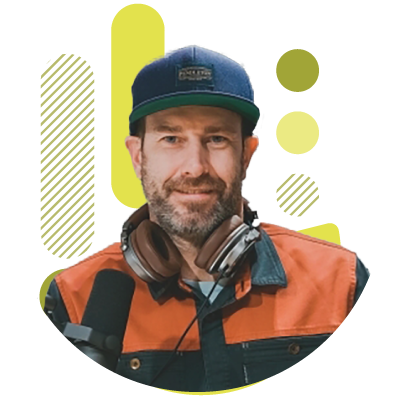
Tim Glomb


